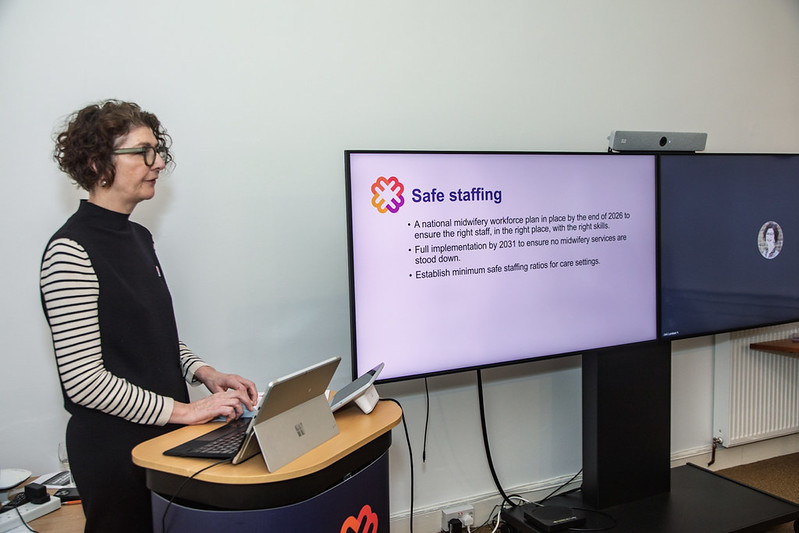It is simply impossible to address birth trauma adequately without addressing the continuing shortage of midwives, the RCM’s Chief Executive Gill Walton has told the UK’s first-ever inquiry into birth trauma.
This week the RCM gave its evidence to the inquiry launched by the All-Party Parliamentary Group (APPG) on birth trauma. Over the next six weeks MPs and Peers will hear from women, healthcare professionals and organisations such as the RCM to understand better what the Government can do to reduce birth trauma.
Giving evidence, Gill said:
“Sadly, not all birth experiences are positive, and we need to be honest about that. Poor experiences can have a devastating impact on woman and should be taken very seriously as a threat to maternal mental and physical health and infant wellbeing. The greatest contribution midwives can make to reducing birth trauma is take time to talk to women during pregnancy, so we can help them prepare for birth and identify any existing trauma from previous births or sexual abuse.
“That said the impact understaffing has on midwives time to do all of this cannot be underestimated. When there aren’t enough midwives, women aren’t getting the time, or quality of care they need and deserve. This time is key to enable women to have conversations about birth trauma, to ask questions and to raise any concerns they may have. One of the key policy recommendations the RCM has suggested to the UK Government to address birth trauma is to focus on providing women with support during the first postnatal month as that they say is the most ‘critical period for maternal health.”
Post birth and in that initial month the RCM has highlighted as a crucial time where all obstetric complications must be monitored. It’s also a time for conversations with women about their birth experience.
Gill continued:
“We all know the first month is a critical time for child health, but we must not forget the mother and her physical and mental wellbeing. Often clinical support at this time is not comprehensive enough due to underinvestment. And with speedy discharges from hospital and cutbacks to community-based midwifery and health visiting services some women are falling through the gaps and struggling alone. We can’t allow this to happen. I would like to see the Government commit to a fundamental overhaul of how we support women and their families during the first six months of a child’s life, looking not just to the NHS but also to child services and the independent sector.”
The RCM has long said that putting women at the centre of their own care, listening to them, can have a positive impact on their experiences of maternity care. The RCM believes midwives are the best advocates for the women in their care, particularly those for whom pregnancy and birth are more complex. The RCM says it will continue to advocate for more time for midwives to spend with the women in their care, to answer their questions, to hear their concerns and to enable them to give best professional advice, as set out by the NMC Code.
The inquiry will continue to run consecutive Mondays in Parliament between 6 February and 18 March and will publish its report in April 2024.

